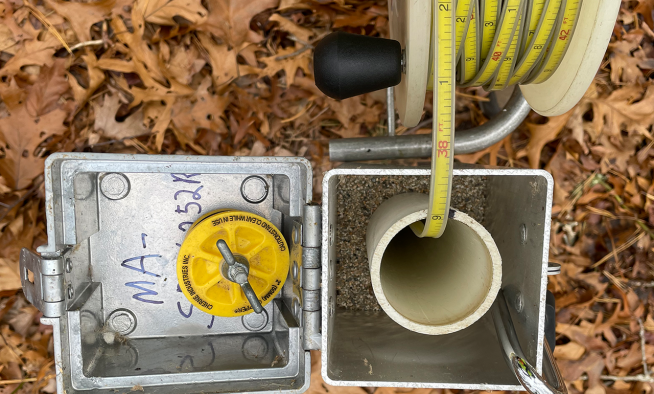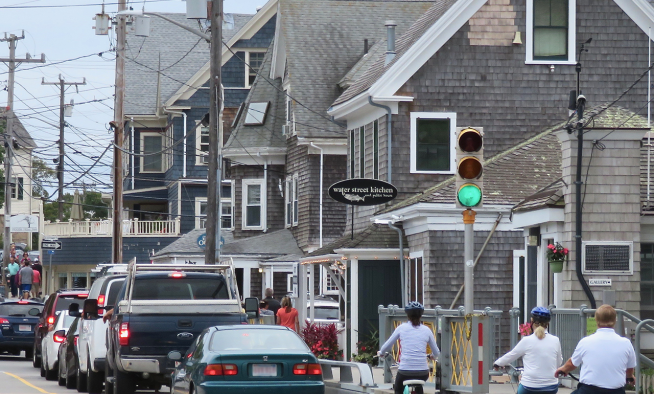Planning for Resilience: How the Cape Cod Commission Supports Hazard Mitigation Across the Region
Cape Cod’s proximity to the sea is one of its most treasured qualities, but it also makes the region vulnerable to severe storms and the growing impacts of climate change. From nor’easters and hurricanes to flooding and coastal erosion, Cape Cod communities face a broad range of natural hazards that threaten residents, infrastructure, and the economy.
To help towns proactively address these risks, the Cape Cod Commission works closely with local municipalities to develop Federal Emergency Management Agency (FEMA)-certified multi-hazard mitigation plans. These plans serve as critical tools for identifying and reducing vulnerability to climate change-induced disasters, improving emergency preparedness, and strengthening resilience across the region.
Hazard mitigation plans help communities identify their most significant local hazards, analyze potential impacts and vulnerable areas, and prioritize long-term strategies to reduce risks. They also help municipalities incorporate long-term resilience into daily operations, land use decisions, capital planning, and public education. Importantly, towns must have a FEMA-certified hazard mitigation plan in place to be eligible for certain federal hazard mitigation funds and grant opportunities.
The Cape Cod Commission provides technical assistance to towns throughout the hazard mitigation planning process. Commission staff collaborate with municipal officials and emergency managers to develop hazard plans, including facilitation of planning team meetings, updating climate and hazard data, reviewing past mitigation strategies, and assessing how new development, particularly in flood-prone areas, may affect a town’s future vulnerability. Staff also help towns assess their current hazard mitigation capabilities, including available personnel, regulations, operations, and financial resources. In many cases, towns are working with limited staff capacity, which has been exacerbated by the rising cost of housing on Cape Cod.
Severe weather events, such as the March 2018 nor’easters and a tornado that struck Yarmouth and Harwich in July 2019, have raised public awareness about climate change and the need to address the region’s vulnerability to impacts from stronger and more frequent storms and extreme weather events. Mitigation strategies include new infrastructure, updating plans and regulations, natural systems protection, and public education. As communities become more attuned to climate-related risks, they are also expressing greater demand for outreach and services that address these concerns.
The hazard mitigation planning process is further strengthened by coordination with other regional resilience initiatives. All fifteen Cape towns have participated in the state’s Municipal Vulnerability Preparedness (MVP) program and the Commission’s Low-Lying Roads project. These programs have generated valuable data and stakeholder input that are now being incorporated into updated hazard plans. Aligning these planning efforts enhances each town’s ability to access funding and implement comprehensive strategies for resilience.
The Cape Cod Commission developed the original Barnstable County Multi-Hazard Mitigation Plan in 2010, which identified common hazards and vulnerable areas across the region. Since then, the Commission has supported numerous towns in updating their local plans. In recent years, staff have worked with Bourne, Eastham, Harwich, Mashpee, Provincetown, Sandwich, Truro, Wellfleet, and Yarmouth to complete updated plans. Currently, the Commission is assisting the towns of Chatham, Harwich, and Yarmouth on new plan updates and work with Eastham is scheduled to begin in the fall.
Each plan update includes a new, comprehensive planning process, as well as a status review of the previous mitigation actions, updated risk assessments, and new data to ensure compliance with FEMA’s latest guidance. Through this detailed work, the Cape Cod Commission continues to play a key role in helping the region prepare for and adapt to future hazards, ensuring that Cape Cod’s communities are not only aware of the risks they face, but actively working to reduce them.
Related Posts




